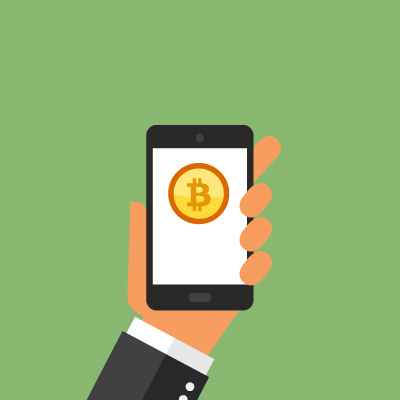In recent months, there has been a lot of interest in Bitcoin. It’s an interesting payment system, meant to be decentralized and provide a way for people to trade with each other without an intermediary. Bitcoin payments have been gaining ground among global entrepreneurs, as well as garnering interest as Bitcoin gains in value against the U.S. dollar.
However, authenticating Bitcoin transactions has been taking longer, thanks to the fact that blocks are capped at 1MB. With so much information flying back and forth, some enthusiasts and miners want to see larger blocks. And now, thanks to a hard fork in the Bitcoin network, Bitcoin Cash is up and running, with blocks as large as 8MB.
Bitcoin Payments are Faster with the Hard Fork
With so many people using Bitcoin, the smaller blocks weren’t up to the challenge. Reports of some transactions taking as long as 4o hours to verify were weighing on users. The hard fork represented by SegWit2X was garnering a lot of attention as well, with the expected increase to 2MB. However, those who moved to Bitcoin Cash didn’t think doubling would be enough — especially to scale capacity for the future.
If Bitcoin payments are to be used by major players (think banks and other financial institutions), faster processing is needed. In fact, the hope is that the ability to process transactions faster will result in more people interested in using blockchain transactions.
Bigger blocks mean faster processing. If Bitcoin Cash can really make transactions instantaneous, it has the potential to help cryptocurrencies into the mainstream.
However, the changes to Bitcoin could mean something very different going forward. Some of the changes could alter the very nature of Bitcoin.
Could Bitcoin Become Centralized?
One of the questions looming is whether or not Bitcoin could become centralized. Right now, many enthusiasts love Bitcoin because it is decentralized. Transactions are public and recorded simultaneously on all nodes.
But what happens as major institutions decide they want to use the blockchain for transactions? As more payment systems adopt Bitcoin compatibility, what happens in the future? It’s hard to say. However, some people think that some type of centralization will come.
Part of the issue is that bigger block size, especially if the blocks grow even bigger, could lead to latency. If people want to go to the checkout counter and buy items from a store using Bitcoin, it doesn’t work as well. This is because it can still take 10 minutes to verify a transaction. The rising popularity of Bitcoin payments could mean some level of centralization. This would provide for a faster way to connect and verify transactions using blockchain.
But who controls that centralization? Would it be a corporation? The miners themselves? A government? One of the reasons for Bitcoin, originally, was for person-to-person payments without a third party. However, if you want to use bitcoins to pay for groceries or an amusement park entrance fee, things change. You need something instant.
This hard fork to Bitcoin Cash is interesting. The old Bitcoin network remains. And, of course, there is still SegWit2X. What happens next should be fascinating, and contribute to what’s next for cryptocurrencies.













